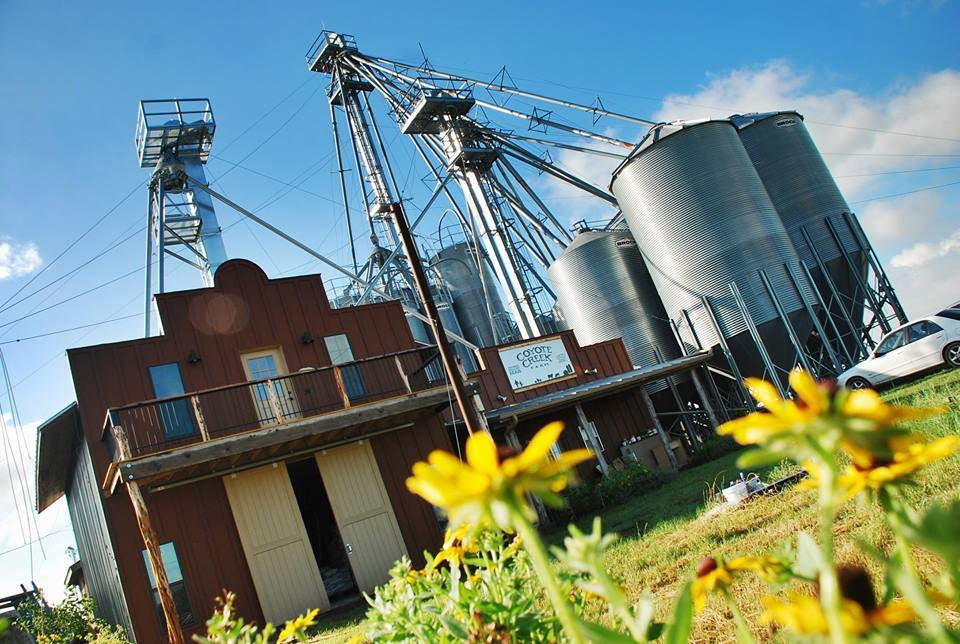Healthy soil leads to healthy food and animals, leading to prosperous family farmers, a strong regional economy and food security—it’s a multiplier effect, beginning with the protozoa, nematodes and micro-arthropods turning decay back into life in the soil. Soil fertility’s link to health became Jerry Cunningham’s obsession, once he purchased Coyote Creek Farm near Austin, Texas—to retire and live a life of “elegant simplicity.”
Jerry’s retirement didn’t consist of pursuit of leisure activities, but rather creation of a pastured organic egg business, organic grass-fed beef farm, and the first commercially licensed certified organic feed mill in the southern U.S.
Although Cunningham passed away in 2013, his work continues as Coyote Creek mills 60 types of organic feed to meet a critical shortage in the U.S. market; offers 8 million of Jeremiah Cunningham’s “World’s Best Eggs” to retail outlets yearly; and markets healthy grass-fed livestock. But what Jerry would probably be most proud of is the robust implementation of a treasured vision: a resurgence in organic, sustainable farming and ranching practices engaged in by a growing number of family farmers able to live a bountiful life.
Grown from 2,500 hens to 37,000
The person at the helm of this legacy is every bit up to the task, both in knowledge and commitment. Cameron Molberg says he may never have developed his passion for organic if he hadn’t studied conventional agriculture—through an animal science food technology, and institutional management degree. When he took the job of general manager at Coyote Creek Farm in 2010, organic was starting to ignite. “In 2005 Austin had two farmers’ markets—now there are 19,” he said.
Jerry started his egg business in 2005, after friend and Whole Foods CEO John Mackey asked him to produce a new egg category—“pastured organic”—for his chain. Coyote Creek’s healthy chickens, shiny coats catching the sun as they peck in the dirt for grubs, roam over 60 acres; their houses are relocated once a week.
“We’ve gone from 2,500 hens in 2010 to 37,000,” Cameron said. In addition to living outside and eating organic food, one secret to the eggs’ high nutrition profile is the application of a compost tea that’s applied quarterly to the pastures, providing essential micro-nutrients and minerals.
Raising healthy chickens requires organic feed, a challenge Jerry experienced right away—shipping in from Pennsylvania was expensive. Conventional mills are reluctant to process organic grains, due to tight USDA regulations. And farmers won’t grow it if there’s nowhere to process it. With financial backing from Mackey, Jerry built his own mill, comprised of four modest bins and a mixer—and began offering organic feed to the public in 2007.
About 24 growers supply Coyote Creek with organic grains, the majority of them within 350 miles of the mill. “Our focus is to attract either new young farmers with access to fallow land, or experienced ones we can convert to organic procedures,” said Cameron. “We nurture our growers like we nurture our soil.”
The 2,000-3,000 different custom formulations are milled fresh and delivered within 24-48 hours. Organic blends are available for chickens, ducks, rabbits, turkeys, cows, pigs, goats, sheep, crickets—with fish feed in the works. “If you can raise it, we will feed it,” Cameron says. “At first we were more reliant on corn and soy, but many customers prefer a broader range now—legumes, grasses, hay, alfalfa.”
The organic feed shortage has hit critical levels in the last few years. “It’s a problem because it creates an import market, suppressing development of our domestic producers,” Cameron explained.
Expansion with new facility in Georgia
Coyote Creek has a lot of customers from the Southeastern U.S. Coyote Creek saw an opportunity to increase organic production to this huge underserved organic market by building another feed mill. They purchased 90 acres of hardwood forest in Forsyth, GA—an hour south of Atlanta—fallow since 1972. Birmingham, Atlanta, and Nashville are all within 250 miles.
The mill will be running by mid-2017, with 40,000 acres targeted for organic crops. The company is also encouraging regional pork and cattle producers to consider organic, luring them with a nearby source of organic feed.
All of Coyote Creek’s products have been Non-GMO Project verified. “We wanted to ensure that our entire supply chain was non-GMO,” Cameron said. “Getting verification added third-party reassurance for our customers. Furthermore, it honed our knowledge on identity preservation, thus making us more effective in mitigating the risks of GMO contamination.”
The process took nine months and was challenging, in part because it required looking through a different lens than that of organic certification. “They’re different routes to get to the same goal, but the information and ways of measuring it were different. Both are effective in reducing GMO presence.”
As Coyote Creek eagerly builds the infrastructure enabling organic farmers to thrive, they stay grounded by tending to the soil and teaching growers to do the same.





